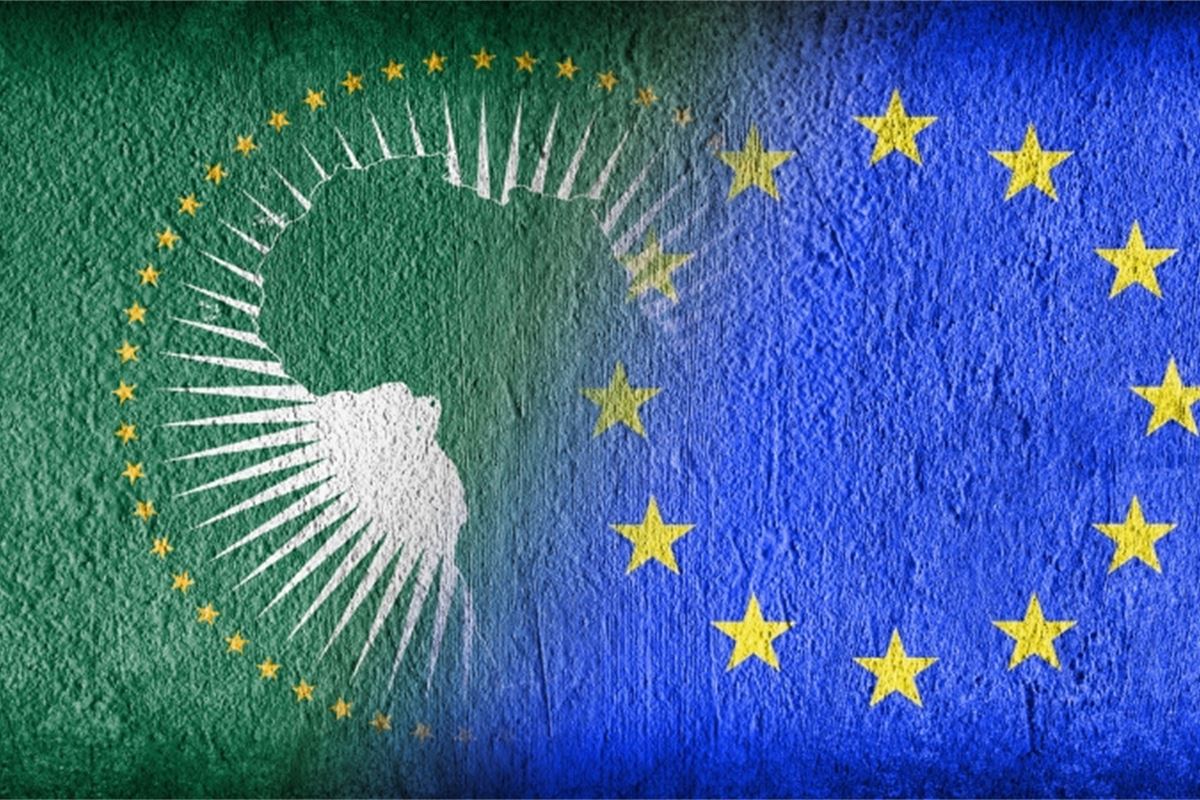Last week Thursday, 55 African Union (AU) heads of state and government and their delegations convened in Brussels, Belgium, for their sixth summit with the 27 European Union (EU) nations.
At the end, EU and the African leaders agreed to a “renewed partnership”, with pledges of major investments, including the mobilisation of 150 billion Euros ($170 billion) from the public and private sectors for investments in Africa over the next seven years.
- NIGERIA DAILY: How Nigerian Politics Will Be Shaken By ‘The Third Force’
- Nigeria needs professionals in fishery technology – Provost
The summit repeated EU’s pledge to give Africa 450 million COVID-19 vaccines by mid-2022 and offered 425 million Euros to help health services on the continent deliver the vaccination.
Yet, the summit’s final declaration that the investments would focus on key infrastructure such as internet access, renewable energy and transport did not provide any concrete detail on funding. And none of these proposals was part of the priorities as drawn by the AU.
Operationally, this was a summit without a breakthrough, the first since 2017, as the EU refused to even consider the temporary intellectual property waiver requested by Africa to allow the generic production of vaccines and treatments.
There was also no headway on a key demand from Africa for the provision of a bigger share of post-COVID-19 recovery aid from the International Monetary Fund (IMF) which would make wealthy nations to step up with $100bn in Special Drawing Rights to support the continent’s economic recovery.
But the summit called for “ambitious voluntary contributions” to add to funds worth some $13bn already pledged by EU member states.
Obviously, the EU’s investments is a way to ward off rivals’ influence as more actors are emerging as possible partners for African countries, especially China, EU’s main competitor. It would be recalled that under the aegis of the Forum on China-Africa Cooperation (FOCAC), Chinese and African leaders met at a summit in 2021.
The AU also held summits with Japan and Turkey, with plans for a conference with Russia at the end of 2022. Already, President Joe Biden has announced a similar US-Africa summit.
Ordinarily, these summits are welcome as they help set up priorities, especially in the area of trade and investment targets. But the drawback is that while the hosts know exactly what they want out of each summit, for Africans, it looks like a jamboree, as they go there empty handed, with nothing to offer but readily available to receive even crumbs.
And this makes each talk of partnership ring hollow as there would indeed be partnerships only when Africa is bringing something to the table. For example, the EU-AU summit declaration on the 150 billion Euros trade and investments has no African input, but part of a predefined European goal to fund diversification of energy sources, achieving its climate goals, impeding migration and curbing the global influence of China and its Belt and Road Initiative.
Henceforth, each summit must bring substance for Africa apart from the photo opportunities that show European leaders willing to receive their African counterparts with fanfare. As the continent has “meager” resources, it should not be wasted on summits if nothing tangible will come out of them. Africans must take themselves more seriously for anyone to consider them in that manner. There must be a change in how things are done, going forward.
African leaders admit a fair share of blame for the state of affairs on the continent despite its 1.3 billion population and endowment of natural and human resources.
Africa, home to 60 per cent of uncultivated arable land, has food security challenges because majority of its countries have failed to transform their economies from subsistence to commercial agriculture or industrialisation. Instead, with the persistent poverty, growing unemployment, widening inequality, wars, conflicts and instability, these leaders still jump at any opportunity for a summit as if it would solve all their countries’ problems.
Now, they must get to work and address the issues that underpin the continent’s underdevelopment and stop looking outside or hopping onto the next available aircraft to summits with regional and global powers as it is becoming clear there are no well-intentioned efforts to support Africa’s development.
African leaders must take responsibility and act in the best interest of their people. The era of seeming to serve external interests and appearing beggarly at each summit is over. This is not the time to acquiescence and celebrate every proposal from summit hosts. This is the time for African leaders to face their challenges, at home, and bring solutions that will improve the continent.

 Join Daily Trust WhatsApp Community For Quick Access To News and Happenings Around You.
Join Daily Trust WhatsApp Community For Quick Access To News and Happenings Around You.


